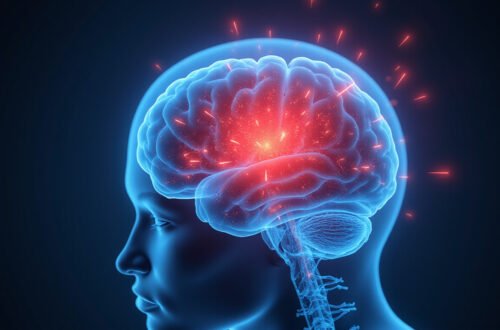Pain can profoundly affect our daily lives, often diminishing our overall quality of life. This article delves into effective strategies for pain management, emphasizing natural approaches that empower individuals to regain control over their well-being. From understanding the complexities of pain and exploring nutritional solutions to incorporating exercise and mind-body techniques, join us on a journey towards enhancing your quality of life naturally. Whether you’re seeking relief from acute discomfort or chronic conditions, this guide offers valuable insights for everyone.
Your Sciatica Pain-Free Future Starts Here – Click to Learn More!
Key Takeaways:
- Pain significantly affects overall quality of life and requires effective management strategies.
- Natural approaches, including lifestyle changes, can greatly enhance pain relief without relying solely on medication.
- Nutrition plays a crucial role in managing pain and can provide essential support for recovery.
- Physical activity and therapy are vital components in developing personalized pain management plans.
- Mind-body techniques, such as meditation and yoga, can foster resilience and reduce the perception of pain.
Understanding Pain and Its Impact on Quality of Life
Understanding pain and its impact on quality of life is essential for anyone who has ever experienced discomfort, whether chronic or acute, as it plays a significant role in our daily activities and overall well-being. Pain can manifest in various forms—ranging from mild to debilitating—and can hinder our ability to perform simple tasks, engage in social activities, or maintain employment, fundamentally altering our quality of life. Effective pain management strategies, including medication, physical therapy, and alternative therapies, are crucial for alleviating discomfort and improving daily functioning. It’s important to approach pain management holistically, considering the emotional and psychological aspects of pain alongside the physical symptoms. By embracing open conversations about pain and seeking tailored treatment options, individuals can regain control over their lives, enhance their capacity for joy, and ultimately foster a more fulfilling existence.
Natural Approaches to Pain Management
Pain management is a crucial aspect of healthcare that affects individuals from all walks of life, and exploring natural approaches can often yield beneficial results without the side effects of medication. Techniques such as mindfulness meditation, physical therapy, acupuncture, and herbal remedies have gained attention as effective methods for alleviating discomfort. Patients often report that incorporating practices like yoga and tai chi not only assists in managing pain but also enhances overall well-being. Integrating these natural approaches into your routine not only empowers you to take charge of your pain management strategy but also fosters a deeper connection between your mind and body, promoting healing and resilience. Whether you’re dealing with chronic pain or occasional flare-ups, these methods provide tangible options that are worth considering in your journey towards relief.
‘The greatest wealth is health.’ – Virgil
The Role of Nutrition in Pain Relief
Nutrition plays a vital role in pain management, as the foods we consume can significantly influence inflammation levels and overall health. For instance, incorporating anti-inflammatory foods such as fatty fish rich in omega-3 fatty acids, nuts, seeds, and colorful fruits and vegetables can help alleviate chronic pain conditions. Conversely, processed foods high in sugar and trans fats may exacerbate inflammation, leading to increased discomfort. Additionally, staying well-hydrated and consuming adequate amounts of vitamins and minerals, especially magnesium and vitamin D, can further support the body’s natural pain relief mechanisms. By making mindful dietary choices and considering the impact of nutrition on our health, individuals not only empower themselves to manage pain more effectively but also lay the foundation for improved well-being.
Your Sciatica Pain-Free Future Starts Here – Click to Learn More!
Exercise and Physical Therapy for Pain Management
Exercise and physical therapy play a pivotal role in effective pain management, offering a holistic approach to alleviating discomfort and enhancing overall well-being. Engaging in tailored exercise programs not only helps in strengthening muscles and improving flexibility but also releases endorphins, which act as natural pain relievers. For individuals struggling with chronic pain, a professional physical therapist can create a personalized regimen that incorporates gentle movements and rehabilitative exercises designed to minimize strain while promoting recovery. By fostering a supportive environment where patients feel empowered to take control of their pain management journey, these interventions can significantly improve functionality, reduce reliance on medications, and ultimately lead to a better quality of life. Whether you are recovering from an injury or managing ongoing pain, integrating exercise and physical therapy into your routine provides a proactive pathway to healing.
Mind-Body Techniques for Managing Pain
In the realm of pain management, mind-body techniques have emerged as powerful tools that can complement traditional medical approaches. These practices, which include methods such as mindfulness meditation, yoga, and guided imagery, empower individuals to cultivate awareness and control over their pain responses. When practiced regularly, these techniques can help reduce the perception of pain and improve emotional well-being by fostering a deeper connection between the mind and body. For anyone struggling with chronic pain or acute discomfort, integrating mind-body practices into their daily routine may lead to significant improvements in their overall pain experience and quality of life. Whether you are a seasoned practitioner or just starting out, exploring these techniques offers a holistic approach to pain management that emphasizes resilience and self-healing.




